Waking with Water
Water is the “valley spirit,” the water dragon of Tao, whose nature resembles water—a yang in the yin, therefore, water means spirit that has become unconscious.
—C. G. Jung, Archetypes of the Collective Unconscious
Water within us and water without us. We are the water. The water is us. If ever there was an element that reflects and captures our human condition, it is water: how it turns and bends or beds and puddles with what is in front of it, literally and metaphorically wearing dense solids down, drip by drip. Or in a sudden fit of rage it gets together with a big bad wind spinning out over the ocean and whooping it up to hurricane speed, running at the land as fast as they can, wind and water, water and wind dancing and dancing and dancing in a mad-spinning circle with a silent center, busting through dams and levees, cracking pavement beneath the visible surface. It is the hidden water bursting forth that wreaks the havoc of sinkholes swallowing whole villages, whole towns washing away, slip-sliding down the bluff, the ridge, the side of the muddy hill, liquefied earth from the floods, the floods that follow a category 5 and a tsunami—to name just a few of the paths by which water moves its volume around the world.
USA – Economic Losses During March…South America – Thousands Affected by Floods, Landslides in Paraguay, Ecuador and Bolivia…Missouri – Evacuation in St. Joseph After River Reaches Record Levels…USA – NOAA Warns Historic, Widespread Flooding to Continue Into May…
—Recent headlines from Floodlist.com
So many floods from so many causes—and yet—somehow, we end up with the same amount of water spread out across the planet, one planet, with one certain amount of water for the whole planet, breathing in and out, in and out of oceans, rivers, lakes, estuaries, the tiniest rivulet all part of the magic of the H2O cycle.
I can recall during a 5th grade science project drawing the picture of the rain falling from the sky in purple crayon dashes, into the poster-painted brown and green earth. Then the earth gives the rain back up to the sky from bodies of water, mountain tops, and plants in vales below in vaporous, wavy lines, mirages, mists. Cotton balls of various hues indicate the water molecules gathering together, moving masses of itself from one place to another above our heads. When this happens in nature, the sky becomes so full of the invisible essence of H2O, it turns into something much heavier than air, and then the purple rain falls again. How light and heavenly this looks from the ground or glimpsed from above, those cloudy places of heaven.
According to the U.S. Geological Survey, the average cloud weighs 1.1 million pounds.
Islands in the sky or water gathering above?
We see clouds gather in various shapes and kinds every day and think nothing of it: fluffy lambs crossing the field of the big, blue sky, coming and going, constantly changing texture and color, imperceptibly different moment by moment—maybe castles or whales or angels or fish drifting in a sea of mottled sunset colors—until such weight, such volume of condensation, cannot be contained—and so disperses, releasing millions of tons of water in the rains raining down or the snow topping mountains—depending upon location and temperature.
Pisces flies in a blue March sky.
Precipitation. Evaporation. Transpiration. Sublimation. Condensation. Precipitation. Water birthing and rebirthing itself, an invisible miracle we just take for granted.
In total, mountain meltwater and runoff account for more than 50% of the world’s freshwater.
—www.watercalculator.org
February in northern climates is a transitional time as the snow melts in a slightly warming way, becoming a strange fog, floating up from the leftover mounds of plowed snow turned ice, still frozen and stuck at corners of the streets, ghosts of winter’s past, departing as a thin opaque veil of fog—the visualization of the mystery of evaporation by sublimation wherein solid ice turns directly into a gas, which by-and-by condenses, becomes a liquid again. I love that this phase is called “sublimation,” which in psychoanalytic terms means to transform or elevate the baser instincts and emotions into or for a higher spiritual purpose.
The gradual accumulation of moisture in volume within the clouds that look so light and fluffy are actually millions of tons of water waiting to happen, until perfect saturation—and voilà, precipitation—and we start all over again, when the sun shines and dries up all the rain—and yes, the itsy-bitsy spider crawls up the spout again. The will to survive is unquenchable.
The average annual precipitation for Washington State is 38.15 inches.
—http//nationalmap.gov
I live in the Northwest where rain is a regular on our weather beat and the air thickens and thins with moisture on a daily basis. How much, how soon, from where and when—we’re talkin’ rain around here. Also—when the sun shines, pretty much everyone stops what they are doing and runs outside to do something else in the sunshine because like water in the desert, sunshine is a precious treasure hereabouts. We like to really appreciate it when we have it, share it among ourselves as good news travels in the grocery store: “Hey! How ’bout that sun!” Response: “I know, right? Gotta love it!”
Like sports fans, bantering verbal high-fives, we praise the miracle of a sunny day. It is a simple life.
But it’s water I really am interested in here because that is the element and the resource closest to my heart and that is the flow that I am flowing with here—water, bursting sideways out of the hill we live on and the philosophical, spiritual, metaphorical, not to mention material effects on me, personally, and you too, if you stop and think for a moment, of what your life would be like if the water suddenly went off, for an unspecified amount of time. Or maybe this has already happened to you—and you are still thinking about it. Or maybe, it has happened to you and you have forgotten it, as soon as possible after the problem was fixed, because of the deeper, buried trauma of it, you’ve sublimated it. The possibilities are as varied as snowflakes.
On a global scale, the amount of water evaporating is about the same as the amount of water returning to Earth as precipitation.
—U.S. Geological Survey
Everything looks better near water
—e.e. cummings, i:six non-lectures
I was born in the Year of the Water Dragon and always, from as long as I can remember, I have known in my heart of hearts that I preternaturally feel better by water. Cummings said it best in his poetical, aphoristic way and I concur. I need to see water, regularly; I must jump into it whenever possible. I rest my eyes where the water meets sky because I just feel better from it afterward. Like good medicine, water works for me.
Nagini in a Northwest sky brings luck.
I consider one of my greatest privileges in this lifetime is to simply turn on the faucet in the tub, feel the water flowing between my fingers, adjust it until it feels just right, pull the lever that turns on the sputtering shower head, and then climb into the wonderful damp steam, for a long hot douse.
When I am feeling this cascade of wet warmth and comforting pleasantness, I do not take it for granted. I feel and acknowledge with gratitude the privilege of this water running down my back. Believe me, I do. Ask my husband, who is often in that shower with me, conserving water and sharing the joy of it. He will tell you, I do not let it go by unacknowledged. I think and say: “Aren’t we the lucky ones! We have cold and hot running water!”
Worldwide, 780 million people do not have access to an improved water source . . . An improved water source is defined as water that is supplied through a household connection, public standpipe, borehole well, protected dug well, protected spring, or rainwater collection.
—CDC: Centers for Disease Control and Prevention
I consider how long some people in this very country, let alone those in distant war zones and bleak stretches of empty sand between those war zones are still waiting to have water service back on or even to begin with—just to be able to turn on a faucet and drink from it, let alone take a long hot shower in it. “How’s the water in Flint,” I wonder aloud, “and what about Puerto Rico? Will it ever be the same?” My husband scrubs his face with a washcloth, we hem and haw, dance in and out under the spigot—soaping and rinsing, so easy, so nice.
“Vanuatu is vanishing into the sea, or parts of it are,” I think to myself, “their showers are over for good.”
I think this to myself because why trouble both of us, my husband and me, here in the fountain of this warm loveliness, this paradise of water washing away day’s cares and even years of worry. The water is rising, rising, rising around our ankles in the tub. We wash and rinse each other’s hair. A twist of the lever and the water goes off. There goes the gray water; there it goes down the drain. Glub glub glub.
A red flag marks a deeper problem.
Due to a series of events both natural and man-made, we came home from a weekend away to find a burst pipe in the wall of our laundry room, which caused various and sundry people with big heavy trucks to come and go, up and down our precipitous driveway, turning the water on and off and on and off and banging and clanging with wrenches and buzzing with skill-saws and whatnot, all to fix a little inner leak.
Meanwhile, one of those well-meaning souls who came to help drove off the driveway in just the right spot to cause the water main to our house to break beneath the ground and work its way up from below, into a gusher, by the very next day. It is nature at work. The water flows down and under and through the earth, the rocks buried deep within are pushed up and up by the force of ground water swelling with long rains and winter snow melt, until those rocky beasts make contact with a pipe, a drain, a culvert, with no malice or forethought and one last slam by a heavy vehicle overhead and BAM—a pipe can crack, a crack can run and run and then … where is the leak? Is Schrodinger’s cat alive or dead? Is this the uncertainty principal in my daily life? You tell me!
Water, water, everywhere,
And all the boards did shrink;
Water, water, everywhere,
Nor any drop to drink.
—Samuel Taylor Coleridge, “The Rime of the Ancient Mariner”
Throughout the waterless days, I have walked up and down and up and down our long steep driveway, turning the water on and off and on and off, as various and sundry experts (all kinds of men, a few good women) come to seek the source of the leak. How long and deep and wide is the crack in the pipe? The digging is a daily riddle and we are all awaiting the sphinx-like answer to be coughed up from the ground water itself, bubbling where we cannot see it.
In the meantime, I have been contemplating what it means to be leaking this valuable resource—this ordinary liquid gold in the ground—precious, precious water—leaking, leaking, leaking away. Is it my Qi, that Chinese medicine term for “life force?” Is it money and financial matters, visible and invisible resources slipping away with the water flow? Undoubtedly, in more ways than one! And what about spiritually? Is there a hole in my soul from which I am leaking away? I feel a feng shui migraine coming on.
Some would say, the water isn’t really leaking away—it is returning to its source, the underground aquifer that feeds our local area well to begin with. I hope that’s true—that there’s some consolation to watching the resource that would save millions of lives, several continents away—if we could just get there—run down the driveway, into a ditch, and disappear into the overgrowth of blackberries and horse tail beyond. Is that running run-off part of the solution or the problem? It troubles me to think about it.
The total volume of water on Earth is estimated at 1.386 billion km³ (333 million cubic miles), with 97.5% being salt water and 2.5% being fresh water. Of the fresh water, only 0.3% is in liquid form on the surface.
—U.S. Geological Survey
What does it mean, symbolically when water becomes an issue in your life? Water . . . water . . . everywhere . . . nor any drop to drink? Coleridge’s sad ancient mariner who suffered so for his salt-bleached soul—remember him? When the albatross overhead was shot down, thoughtlessly, and then cursedly—the wind stops, the water is still, and there is nothing to redeem the situation. That’s one kind of water problem, for sure—too much and too salty, and cursed by a dead bird. Thank goodness that’s not us! Or is it?
Inter-dimensional travelers: clouds and birds.
Water has many metaphors and a catalogue of symbols that it comes with—wading in the water for spiritual awakening, a baptismal birth and rebirth, the water of life that bestows eternality, the fountain of youth that is the essence of desire, the cleansing of hands as in washing your sins away like Lady Macbeth and murderous blood, the flood that cleanses the earth of evil as in Noah and the Ark, the water that washes the feet of Christ as in the action of loving-kindness; meanwhile, the water that flows in the Ganges—the great river of souls from its source in the rooftop of the world, the Himalayas, down to the Bay of Bengal—it is the mega-mother-metaphor for Life.
I come to you as a child to his mother,
I come as an orphan to you, moist with love.
I come without refuge to you, giver of sacred rest.
I come a fallen man to you, uplifter of all.
I come undone by disease to you, the perfect physician.
I come, my heart dry with thirst, to you, ocean of sweet wine.
Do with me whatever you will.
—Ganga Lahiri, 17th-century poem by Jagannatha
There is a many-layered meaning to the image of such water that flows like rivers: like the River Lethe that washes mortal memory away just before reaching Hell, or the River Jordan that Michael rows his boat across to reach the Promised Land; like your whole life is flowing while the days drip, drip, drip away and meanwhile the same river is never the same in any one place you stand—always the same, always changing.
What about the water that is deep and hidden, the water we draw on from the ground, the secret sources of the water in the ground—the well that symbolizes the constancy of that resource beneath our feet and our relation to it?
The town may be changed,
But the well cannot be changed.
It neither decreases nor increases.
They come and go and draw from the well.
If one gets down almost to the water
And the rope does not go all the way,
Or the jug breaks, it brings misfortune.
—“The Judgement,” Hexagram #48, “The Well,” from The I Ching or The Book of Changes
We understand this to mean not only our collective unconscious running beneath the surface of our ordinary daily mind, which is as deep or as shallow as we perceive it to be, but, that water is not really a symbol at all—it’s just the plain truth:
Water = Life as we know it.
No water = No life as we know it.
Are we clear on that?
Whimsical cloud form or is that a Naga overhead?
Let us step back from that reality and consider the “mythos” of water for a moment. The East Asian iconography of Buddhism, Hinduism, and Jainism all include a class of beings known as Naga for male and Nagi or Nagini for female. These are water beings whose shape combines snake and human, by head and tail. They also are seen as dragons of the water element and their images adorn temples and sacred places throughout Southeast Asia. I have been reading up on them, like a person looking for a solution to a problem that lives in the infra-thin boundary between worlds, like an alchemist looking for the perfect transformative agent to turn lead to gold.
By my basic but earnest attempt to understand their meaning, I have come to see that they are keepers of secrets—buried in the earth, where the unknown, the unconscious lives—their hidden teachings yet to be revealed, their wish-fulfilling jewels, and all manner of precious mysteries we humans have no inkling of, yet to be found, resting in grace, in that deep, dark place of the Nagas and Naginis. Please Do Not Disturb!
Complications beneath the surface.
This sort of water problem that my husband and I are confronting whereby our household water is gushing from unknown sources, and we are having difficulty discovering the origin of the pipe break—the upset of earth and dirt and rock and clay in the process of discovery—all of this must be very upsetting to the invisible inhabitants of this place and I am thinking about what I have to learn from them, here and now, in my own backyard, to make up with these local area inhabitants beneath the surface of the earth.
For starters, I am contemplating what sort of ritual, what sort of symbolic gesture I can make to them, to say I am sorry for this human mess we caused for you. Perhaps if I address them in plain language with a sincere apology, perhaps, deep beneath the earth, they will hear me and know: I am sorry for digging up your underground world and uncovering your metaphors of hidden temples and symbols of buried treasure, sorry for disturbing the places that are your sacred domain.
In my mind’s eye, I see the Nagas and Nagini’s raising their heads in awareness that the land is unstable, that the water, their water, is turning brackish, that the soap suds of our and our neighbors’ laundry is too perfumed and toxic, that the sound of jets and Growlers roaring over head from the naval base up north is also driving them vibrationally crazy, that every step we take mindlessly, thoughtlessly, in disregard for the equality of all living beings, is breaking the back of a Naga somewhere buried in the earth in general and beneath my driveway, in particular, at this very moment. It is not a pretty picture, where the symbolic rubber meets the allegorical road.
Literal rubber hits the literal road.
What are the right words to say? I am sorry to these metaphysical beings for the overly long showers and the dishwasher that is inefficient and noisy. I’m sorry for the weed-killer the nearby golf club drips into the ground where you might upon occasion lay your eggs. Sorry for the oil spills, and the gas leaks when ordinary people fill their fuel tanks and dribble on the ground thoughtlessly the last bit left in the handle of the hose; sorry for the landfills that seep and the car wash’s run-off; sorry for the jet-skiers who leave their rainbow of gasoline behind them in the waters of your domain, and really sorry for the airplane crashes that spread jet fuel to the deepest depths of the ocean floor, along with the lost travelers and their luggage, and the grief that joins the ocean to the sky, where far below the sea creatures die along with the rest.
I want to say to you, the beings that arrived here before us and with any luck, will last past us—forgive us our trespasses. We are not all the same, we humans. Some of us care about this more than others of us. Don’t judge us all the same. Some of us are going to die for lack of water this year and some of us are going to die of floods, and in so doing will become that elusive “One” with the elements within and without us.
It is hard to remember, when there appears to be so much water here where I live, looking out on Honeymoon Bay now, snow covering the mountain tops to the east in the Cascades and to the west in the Olympics. When water is pouring up through the ground and running down our driveway right now—water running, running, running at its own natural pace, it is hard to remember that there is only so much for the whole planet—a finite amount of water, for all purposes.
Water flows up from below, snaking through the inner and the outer.
It is hard to remember that this element is the most significant element of our lives. It is just this one molecule, made up of only two atoms of hydrogen and one atom of oxygen—H2O. And look what it is capable of? A dance from liquid, to solid, to gas, around and around, keeping life afloat, a true inter-dimensional traveler, connecting worlds within worlds with water—“the well”—the source of all we see and are. Awake to this simple truth now, what can I say to the Nagas and Naginis, to the forces of nature that pushed back at me and my personal sublimation of water issues, who perhaps even pushed that rock up to the pipe where the heavy truck hit and cracked it, opening the source up, revealing the problem beneath the surface, the whole collective unconscious ocean of it? What can I say but—thank you for the wake-up call! Message received loud as a torrent from a mountain melting glacier stream and clear as water from the deepest well.
The meter stops here.
*All photos by the author


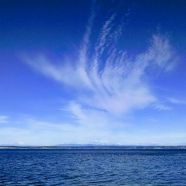





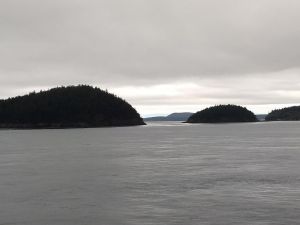
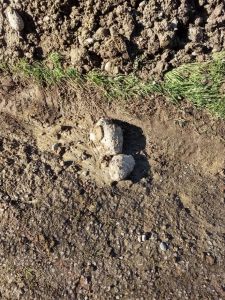

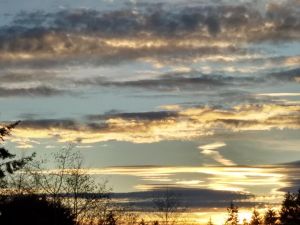
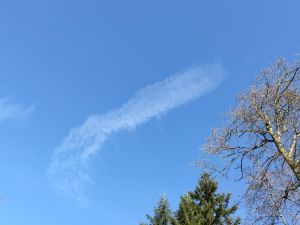
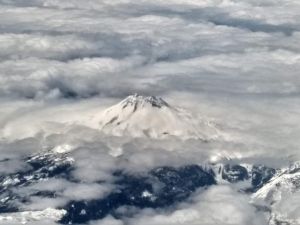
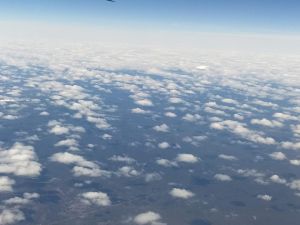
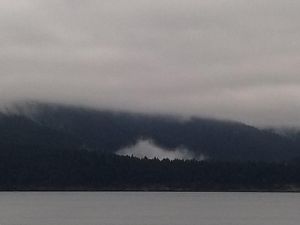
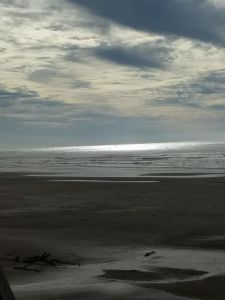
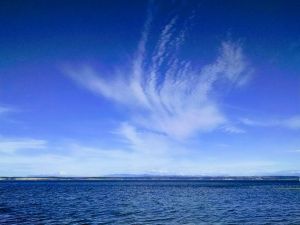
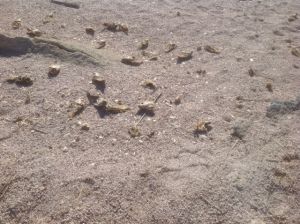
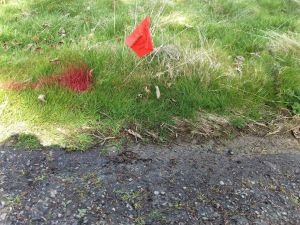
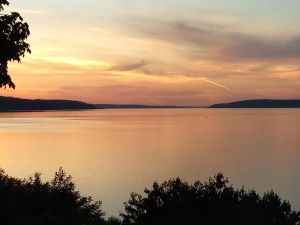
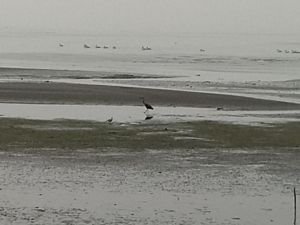

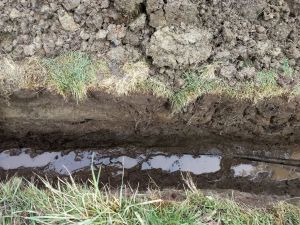
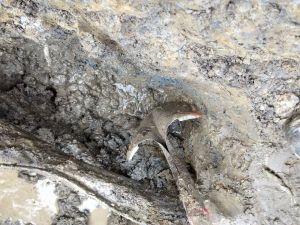
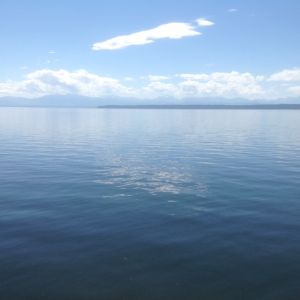
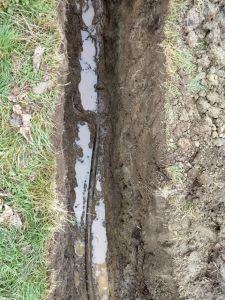
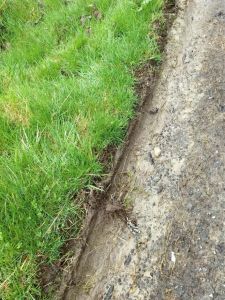
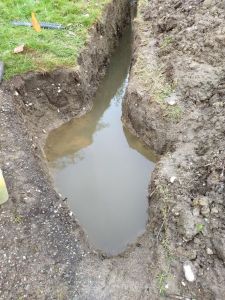
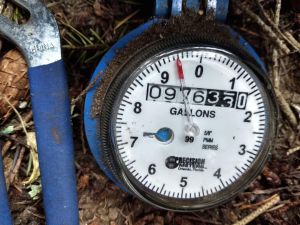
This was absolutely lovely and thought provoking. Well done!
Wait until I regale about our New Year’s Day, two years ago, when my David bumped our 127-year-old iron water service pipe, and it broke off at the wall. BEFORE the water main turn off for the house. Two gallons a second for 3 1/2 hours. And our finished basement stayed dry. It’s a really good water story….
Words of wisdom and contemplation and more sublimation for this double Pisces Water Dragon. Wonderful depth of perception and reminder of how precious our water is to our fragile and often unconscious human race. Thank you for the beautiful verbal and visual images, and a few chuckles too! I look forward to more to come…
Oh dear Judith~ you have written masterfully~ bringing tears and caring and wisdom to my heart.